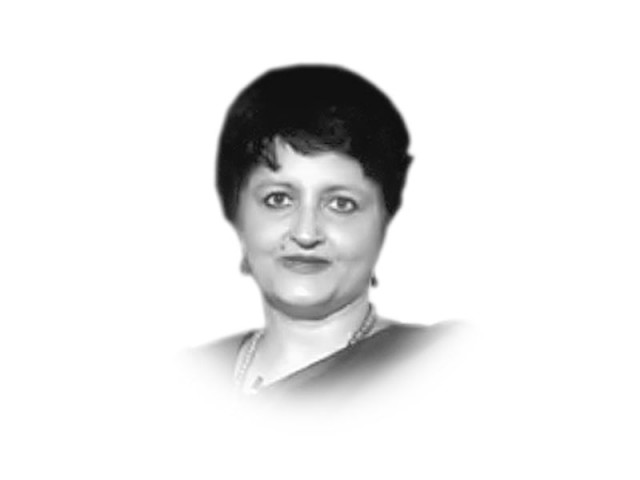Grow up governments!
The ruling elite in both countries is reluctant to let go and hence, turns deaf and blind to the reality.

The writer is a consulting editor with The Statesman and writes widely for several newspapers in India
One is mentioning this as clearly, over and again, we are reminded that peace between India and Pakistan is totally dependent on the political vagaries of time. And while many of us believe that civil society has a major role to play, and is actually very important in keeping relations on some kind of an even keel, perhaps there is some truth in former Pakistani president Pervez Musharraf’s statement that the governments of India and Pakistan basically determine the freedom of civil society to pursue peace, as they are the final arbiters of peace, or for that matter, war, at any point in time.
The role of civil society is important, but as governments like to insist, limited. It is confined to generating pressure, to ensuring that the people develop a stake in peace, to disseminating information about each other to break ugly stereotypes, to resisting efforts by the political class to ghettoise bilateral relations in the corridors of power and to working towards establishing peace not as a whim, but as an ideology surpassing all others.
But the limitations are visible, particularly when governments insist on ignoring the progressive aspirations of their peoples and strengthening what should be fringe voices of intolerance. This time around, both New Delhi and Islamabad seemed to have, at least, managed a holding operation, in that the ceasefire at the Line of Control (LoC) had held since 2003, people-to-people contacts had increased, and while official level talks on the vexed issues had not yielded record-breaking results, at least the talks were on and decisions such as relaxing the visa regime, improving trade and business, were off the ground.
But then, after the LoC skirmishes and the deaths of soldiers (which, by the way, are part of army confrontations at the border at the local levels), it all snapped. Hysterical 24-hour television pressured the Indian government that had initially responded with sobriety, to move into offensive gear and within days, the talks were off, visas became the first casualty as always and the rhetoric changed from peace to war. Pakistani politicians responded in kind and presently, the two countries are again glaring at each other, waiting for the other to blink.
Fortunately, this has not escalated. And while there are important strategic reasons for this, civil society that has expanded to include, as this column has pointed out, many more sections of society has played a role. People of both India and Pakistan do not want war and except for the few masquerading as nationalists on television, the majority wants peace. Perhaps, it is because both our people are facing tremendous problems of existence at different levels, or it could be because the younger generation, free of the baggage of Partition, does not want to keep shedding blood, or perhaps, it is because many more in each country realise that the other does not have horns and four ears. The fact remains that the voice against war is actually growing louder than the voice against peace.
The ruling elite in both countries is reluctant to let go and hence, turns deaf and blind to the reality even as it seeks to drown the voices of sanity and sobriety. But it is losing the plot and even measures, such as not allowing mobile services for visitors from the other side, have not been able to dampen the resolve of the people to keep contact and communication open.
The people of India and Pakistan are coming of age. Grow up governments.
Published in The Express Tribune, February 16th, 2013.















COMMENTS
Comments are moderated and generally will be posted if they are on-topic and not abusive.
For more information, please see our Comments FAQ